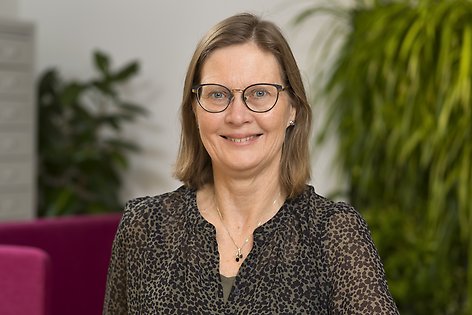Meet Karin Artursson - Scientific Director at the National Veterinary Institute (SVA)
In this interview, our programme committee chair for this year’s summit, Professor Karin Artursson, introduces us to her work and research and shares her perspective on the critical need for equitable and sustainable food systems.
My position at the National Veterinary Institute (SVA) is as Scientific Director. At SVA, we work with different aspects of animal and public health. Some animal diseases are zoonotic, which means they can be transmitted directly to humans, or food can be contaminated.
One of my main tasks is to make the research at SVA visible to reach an impact on society, and therefore we very often work together with public health and food safety. This results in that we can use a one health approach to many questions, which is essential in research and control and surveillance of animal diseases.
I am also involved in a big EU Horizon 2020 One Health European Joint Programme, onehealthejp.eu. Within this programme, in total, 47 projects and lots of other training activities contribute to aligning and harmonising the work between authorities involved in public health, animal health and food safety. The projects are in the areas of foodborne zoonoses, antimicrobial threats and emerging threats. I also have for many years worked with bovine mastitis to find out how infections caused by Staphylococcus aureus affect udder health and how they are spread in and between herds", says Dr. karin Artursson, Scientific Director and Adjunct Professor, SVA.

Karin Artursson, PhD, Scientific Director and Adjunct Professor, National Veterinary Institute (SVA)
What made you interested in accepting the role of chairman of the programme committee for this year’s summit?
I have attended some of the earlier UHS summits and find them really forward-looking. Bringing experts together from different areas and with different roles in society gives a good starting point for fruitful discussions to tackle important societal issues. The topics for the summit are always relevant and very current. This year´s topic has so many aspects, and it relates to many of the Global Sustainability Goals. The theme is challenging but more current than ever. It is also a topic where Uppsala has many ongoing initiatives, resulting in new knowledge that will now feed into the conference workshops", says Dr. Karin Artursson.
Uppsala Health Summit 2022 aims to provide an arena for bringing forward the recommendations from this autumn’s Food Systems Summit with a special emphasis on food systems’ impact on public health globally. In your opinion, what will it take for countries to move forward on the agenda to create equitable and sustainable food systems?
That is a difficult question, and I hope the outcome of UHS 2022 will contribute to the answer. There are so many interconnections to be considered. According to FAO, a sustainable food system is a food system that delivers food security and nutrition for all in such a way that the economic, social and environmental bases to generate food security and nutrition for future generations are not compromised. For many reasons, such as climate change, depletion of natural resources and population growth, there is an urgent need for more sustainable food systems. At the same time, the requirements change as time goes by, resulting in a need for flexible solutions that continuously can be adapted to the current situation. I think education for everyone about our ecosystems and how we as human beings are interconnected to these are basic", says Dr. Artursson.
Another important component to move the agenda forward is brave politicians who are skilled in motivating their voters to take on a healthier lifestyle, even if it is at a cost. We also need research and innovations, for instance, to find new sources of protein, but also to present new food in an attractive and tasty way. I think equity is only possible in a world where the food systems are sustainable", she continues.
In what ways can Uppsala Health Summit contribute?
It is very important that politicians and policymakers have a forum to meet researchers. The mutual understanding of factors influencing the development towards sustainable food systems and the common definition of problems that need to be solved are essential for moving forward.
Communication is not always easy, but I think that the format provided by UHS has proven to be successful. The well-appointed high-profile plenary speakers set the frames for the conference and then different topics are discussed in the workshops. The expected outcome for every workshop is conclusions of the discussions and a roadmap for future work. With these instruments, everyone can take the messages back to their organizations, countries or parties and further process what can be done in different contexts. This will contribute to moving the agenda forward to create equitable and sustainable food systems", says Karin Artursson.
